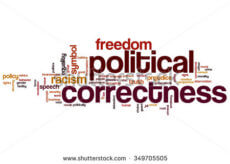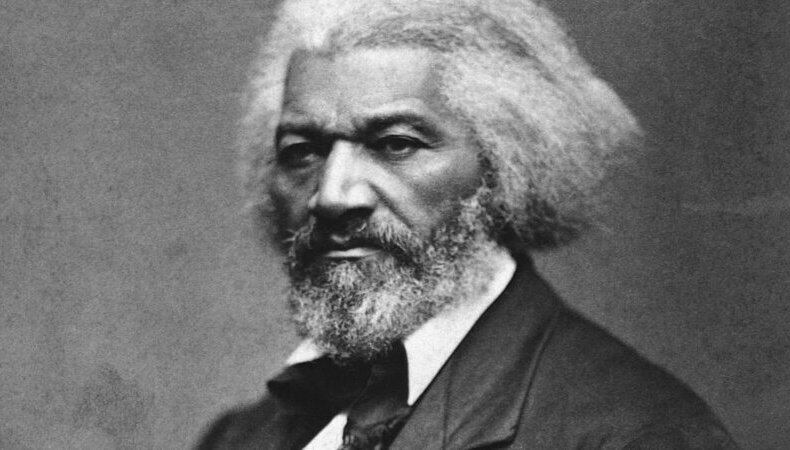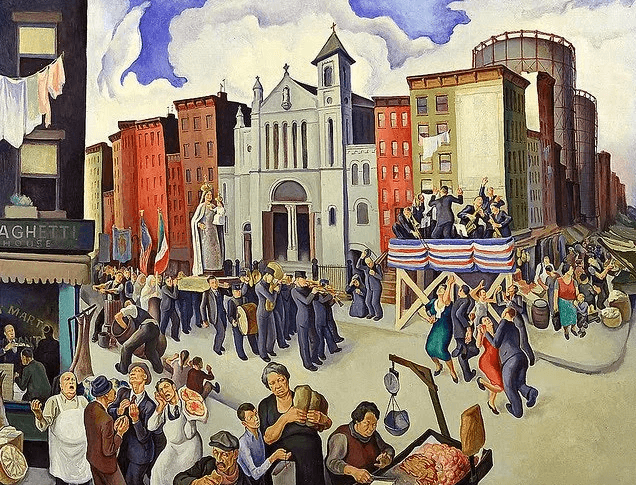The Use and Abuse of “Political Correctness”

A consistent defense of the uncivil rhetoric at the heart of the Trump campaign is an appeal to being politically incorrect. The idea is that liberal politicians and the media that loves them put informal parameters around what can be said and in a manner that is at odds with the rights and interests of the American polity. It is an example, they say, of how far America has fallen from greatness and why Trump is the only one who can fix it.
What is the origin of “political correctness” and how has it come to be understood and practiced by Trump and his supporters?
For starters, we could consider Socrates’ conviction and death sentence in Athens as the first historical example. Indeed, the charge against him—corrupting the youth and not believing in the gods of the city—were as much about what he thought as what he was said to have done.
Perhaps if Socrates had offered a defense (apologia) of any kind rather than suggesting that he should eat for free for the service he provided to the city, Athens might have decided differently. But being politically correct or incorrect is a function of individual liberties, which did not exist in Athens at the time. It was a limited democracy, but it was not a liberal one.
The restrictions placed on public intellectuals and writers in illiberal times gave rise to what Leo Strauss described as “esoteric” writing. Philosophers could not say what they really meant, so they had to hide their true teaching in a way that could be understood by the few.
The modern notion that individual liberties and rights ought to be protected from other citizens originates with James Madison. In Federalist Papers 10 and 51, he famously described how an extended republic could correct for the dangers of majoritarian democracy by making possible a pluralism of interests. Minority factions were not a threat, but the size and diversity of the new country would make every faction a minority faction—and thus not a threat.
Alexis de Tocqueville made the concept of the “tyranny of the majority” even more explicit. Like Madison, Tocqueville understood how officials in an elective democracy could undermine the classic liberal protection of individual rights. Tocqueville perceived a lack of strong and independent individuals in democratic society as compared with aristocratic Europe, and he championed political liberties and civic associations to prevent the rise of a paternalistic national government. Democracy is predicated on a certain degree of political liberty, but democracy can also work to undermine political liberty.
Democracy and liberalism do not always go hand in hand. Indeed, as we have seen in the Middle East in recent years, democracy is much easier to implement than liberalism. It is not difficult to have an election. The first challenge comes in letting people participate in a fair and open way. The greater challenge comes for the loser who has to concede defeat and for the winner who has to respect the limits of his or her office.
John Stuart Mill called the protection of individual liberty from the hands of other citizens “social liberty.” Like Tocqueville, he realized that our neighbors and friends can tyrannize over us much more thoroughly and effectively than a single despot ever could. A king can make sure that we act in certain ways. But the people in our homes and on our block can require that we think in certain ways.
Trump uses the charge of political correctness in a different way. For him, it is not about protecting his right to speak his mind against the hands of a despotic majority—about liberalism pushing back against democracy. It is about using the status and privilege of the white majority to impose its will on the less fortunate. In practice, this has meant that Trump has given himself a permission slip to say whatever is expedient for his campaign at the time and in a way that only incidentally contributes to political discourse. This also explains his instinctive disrespect for women, including the ones who have accused him of sexual assault. In the past, this would have been done quietly and with impunity, but the country is demographically and ideological different than it was 50 or 60 years ago, which has given rise to much anxiety and dread.
Also at issue is how much of Trump’s rhetoric is at odds with facts. Consider his charge that immigrants and free trade are harming the economy, despite all of the economic data to the contrary. The same goes for his shotgun-style immigration policy, which treats all Muslims as terrorists and all Mexicans as rapists till proven otherwise, his role in “birtherism,” and his continued insistence on the guilt of the Central Park Five. Mill championed liberty as a means to discover greater truths; Trump is using his liberty to inflict his ignorance on the country.
Madison, Tocqueville, and Mill recognized that minority views could be persecuted or silenced by the people they put into office or by society directly. But they would see Trump as a threat to liberty and democracy, especially the manner in which he so routinely and instinctively shows hostility and contempt for a free press. No one is saying that Trump shouldn’t have the freedom to speak his mind. But no one who loves liberty should want him to be president.
Anyone interested in what a Trump administration would look like need only read It Can’t Happen Here, Sinclair Lewis’s 1935 novel detailing how fascism comes to the United States. It chronicles Senator “Buzz” Windrip who wants “to make America a proud, rich land again,” which means demonizing blacks and immigrants, militarizing his supporters, and eliminating dissenters. The remarkable thing about Windrip is not that he becomes a fascist president; it’s that he is elected to be one. Unlike Tocqueville, who thought American fascism would result from excessive individualism, Lewis appreciated the extent to which American nationalism and self-interest has paved the way for the rise of such a power.[1]
The more traditional understanding of political in/correctness is represented by Bill Maher and Sam Harris, when they remind liberals of how acts of terrorism are disproportionately carried out by Muslims. It is politically incorrect not because liberals find it abhorrent, but also because it happens to be true. (Remember that Maher lost his ABC show Politically Correct after insinuating that suicidal terrorists possessed a kind of courage absent in the American military, which prefers a safer and more remote brand of warfare.) The aim here is not to encourage violence or prejudice against Muslims, but to better understand the relationship between a religion and violence, for the sake of national security.
Colin Kaepernick is also being politically incorrect in the traditional sense, by taking a knee during the national anthem before 49ers games. His detractors don’t see him drawing attention to police violence; they see him as unnecessarily putting his politics into their football, not appreciating that playing the anthem and expecting everyone to stand for it is itself an unnecessary political act, which Kaepernick is merely responding to and in a rather moderate and respectful way.
And what is the nature of the Trumpian grievance? The biggest insight into Trump’s supporters is the massive survey (of over 87,000 of them) done by Gallup.[2] It turns out that they are doing better than average. They are also more likely to live in a more homogenous part of the country. They also have in common a fear of the future for their children and their community, which explains the general blindness to issue of race and nationality. Kathy Miller, the former county campaign chair for Trump in Ohio, went so far as to blame Obama with the invention of racism.[3] The racism at the heart of Trump’s campaign is not a bug for his followers; it is a feature.
In the case of Bernie Sanders, Trump sees a kindred spirit of sorts, in that both men were anti-establishment critics of the neoliberal economy. The difference, of course, is that Sanders targets corporations and the capitalist power structure, while Trump is targeting everyone who does not look like him. Their pretend victimhood is as hypocritical as it is non-sensical. It is a curious brand of politics where the have-somes blame the have-lesses rather than the have-mores, to say nothing of the inconsistent call for self-reliance, which they exempt themselves from.
Perhaps the most absurd aspect of the Trump campaign is the language that is used to cover it. We see the terms “nativism” and “alt right” are Orwellian to a remarkable degree. Coming up with new terms for old prejudices is nothing new. What is new, and disappointing, is how these terms are used by the moderate and liberal media, for fear of being charged with bias. Even calling Trump’s GOP “populist” does more to obscure than illuminate the nature of his positions and proposals.
Also distressing is what the campaign has revealed of conservatives, religious conservatives in particular. Eric Vogelin believed that a utopian view of Christianity can give rise to tyranny. But that is not what is happening here. On the one hand, we see a sincere effort on the part of religious figures to stop Trump. The Mormons seem to be on the side of the angels in this fight. On the other hand are the religious pols like Ralph Reed who see Trump as the best way to advance their narrow moral agenda. But it is not motivated an idealistic vision. It is small and cynical in that it swaps Jesus’s love-thy-neighbor message for a brand of Christianity whose sole concern seems to be denying women sexual freedom and stopping same-sex couples from buying wedding cakes. They are more bothered by what Hillary Clinton would do to the Supreme Court than what Trump would do to the Constitution.
The same goes for a large segment of the Republican establishment, which continues to enable the Trumpists. Paul Ryan is as much concerned with the Republic majority in the House as he is with having an implausible lack of accountability for his role in Trump’s rise. It is a shameful conservatism that places partisanship over patriotism and self-preservation over love of country.
As it functions now, the Republican Party is not a healthy or a conservative force in American politics. It is reactionary and radical in a way that history will show to be a touchstone moment, regardless of how it plays out. What could be more politically incorrect than casually suggesting that a presidential candidate could be assassinated, that citizens ought to patrol polling places to prevent against the myth that is voter fraud, or giving cause to violence and open rebellion if Hillary Clinton is elected.
The round of toxic politics this election cycle has led to a rise in psychological anxieties[4]—and divorces, no doubt. And the lack of excitement about the major candidates will likely mean low turnout. It is a sad commentary on American democracy that apathy can be heralded as a virtue.
What the country needs most is a healthy dose of empathy. The Trump candidacy has done nothing to erase our “empathy deficit.” Indeed, just because we can say something does not mean that we should say it. Political incorrectness, to the extent that the term is useful at all, should be inspired by human decency and compassion, not defined by its opposition to it.
At its best, political correctness is shorthand for how the words we choose should reflect a sensitivity for historical wrongs. There is nothing wrong or un-American about that. It can also serve to remind us that democracy and individual rights are not always mutually supporting. But Trump has taken the worst element of political correctness, the reverence for identity, as a means pursue his undemocratic and illiberal aims.
Notes
[1] For more, see my Sinclair Lewis and American Democracy (New York, NY: Lexington Books, 2016), especially Chapter Three.
[2] Max Ehrenfreund and Jeff Guo, “A massive new study debunks a widespread theory for Donald Trump’s success,” The Washington Post, Aug. 12, 2016.
[3] Philip Bump, “A Trump county campaign chair in Ohio just blamed racism on Obama,” The Washington Post, Sept. 22, 2016.
[4] Paul Schwartzman, “Psychologists and massage therapists are reporting ‘Trump anxiety’ among clients,” The Washington Post, March 6, 2016.




